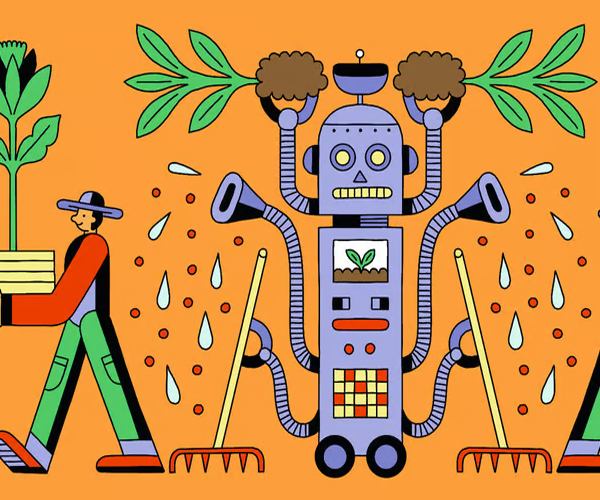Twenty-five years ago your correspondent hired(rented) a cellphone in Congo. Each day, it cost what a typical local made in several months. The handset was as heavy as a half-brick and only somewhat more useful. Practically no one else in Congo had one, bar cabinet ministers and tycoons, so there were not many people to call. In those days, mobile phones had made no detectable difference to most people’s lives in the world’s poorest countries.
Today, many farmers in Congo have phones: the number of connections has grown 5,000-fold as the population has doubled. Mobile devices have transformed lives throughout the developing world, especially as more and more of them are hooked up to the internet.
AI has the potential to significantly transform life in developing countries across various aspects. Healthcare: AI can enhance healthcare services in developing countries, where there may be a shortage of medical professionals.
Agriculture: AI can revolutionize farming practices by providing valuable insights on crop health, soil quality, and weather patterns. Farmers can use AI-powered systems to optimize irrigation, fertilizer usage, and pest control, leading to increased crop yield and reduced costs.
Education: AI has the potential to bridge the education gap in developing countries. Intelligent tutoring systems can offer personalized learning experiences, adapting to individual students’ needs and providing targeted support.
Financial Inclusion: AI-powered technologies, such as mobile banking and digital wallets, can help extend financial services to unbanked populations in developing countries.
Infrastructure and Transportation: AI can improve urban planning and infrastructure development in developing countries. Smart city technologies, powered by AI, can optimize energy usage, traffic management, and waste management systems.
Disaster Management: AI can play a crucial role in disaster management and response.
AI enables to perform tasks that were once the domain of human intelligence, revolutionizing industries, enhancing productivity, and presenting new opportunities for innovation and problem-solving.
Source: The Economist




